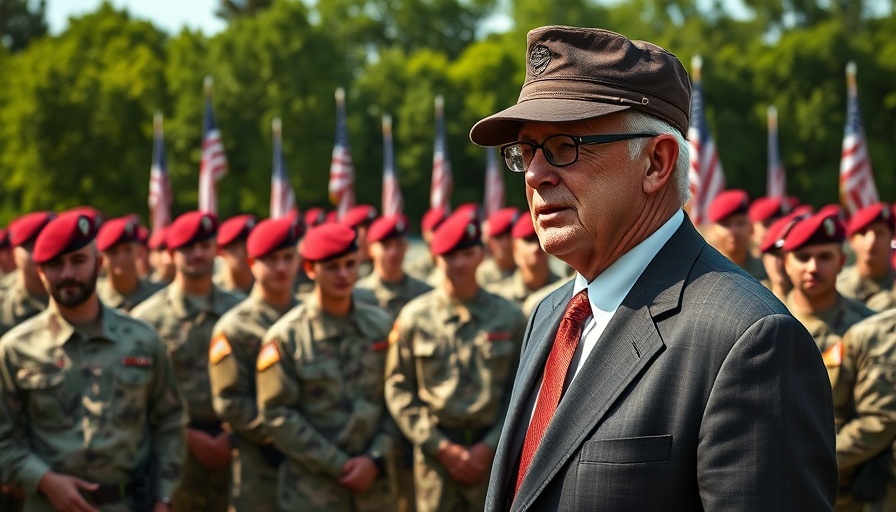
The Militarization of Politics: An Alarming Shift
In a striking escalation of political maneuvering, President Donald Trump has recently mobilized the National Guard and United States Marines against the objection of California Governor Gavin Newsom, raising questions about the long-held norm of military impartiality in U.S. governance. This unprecedented move reflects a troubling trend where military forces are deployed for political purposes, suggesting a shift not just in presidential strategy, but in the relationship between the military and civil authority.
Historical Context Risking Military Neutrality
Historically, the U.S. military has endeavored to maintain a nonpartisan stance, remaining above the political fray. This principle is grounded in the belief that military decisions should be based on national security and public safety, not political agendas. However, Trump's actions blur these lines dangerously. Mobilizing troops without the governor's consent echoes the fraught history of military intervention in domestic affairs, harking back to when President Lyndon B. Johnson deployed troops to enforce civil rights, highlighting how military presence can provoke significant civic unrest.
Political Theater vs. Military Integrity
The optics of Trump’s rally at Fort Bragg, where he criticized Democratic leaders while flanked by uniformed soldiers, stirred controversy. Critics argue this serves as a political spectacle, undermining the military's integrity. Carrie Ann Lee, a senior fellow at the German Marshall Fund, asserts that these actions can be seen as a blatant manipulation of military institutions for political gain, compromising the military's long-standing apolitical ethos.
Implications of a Politicized Military
The consequences of a militarized political landscape extend far beyond individual deployments. When soldiers are cast as props in political theatrics, it risks eroding public trust in military institutions. Citizens may come to view military personnel not as impartial defenders of freedom, but as covert operatives of political strategies—an alarming perception that could have lasting repercussions on civil-military relations.
A Legal and Ethical Quandary
The recent federal court ruling declaring Trump's mobilization of the National Guard unlawful further complicates this situation. The court mandated that the Guard return under state control, demonstrating an essential check against federal overreach. This legal scrutiny underscores the importance of adhering to established norms regarding military intervention and the necessity of maintaining a delicate balance between state and federal authority in these matters.
Community Reactions in Bakersfield and Beyond
In Bakersfield, where community sentiments about governance and public safety vary widely, there is growing concern about the implications of using military personnel in domestic conflict. Residents are increasingly alarmed by the erosion of democratic norms and the precedent set for future presidents who may similarly intervene in state matters. Engagement in local discussions about this topic can encourage meaningful dialogue about the role of government and military in preserving freedoms versus enforcing political agendas.
Looking Ahead: The Future of Military Politics
As we move forward, the pivotal question remains: how will we navigate the intersection of military action and political power? Analyzing this dynamic will be crucial not just for historians but for every citizen who values democratic governance. Keeping the military free from political entanglements is vital to preserving its honor and effectiveness.
As citizens, it is essential to stay informed about these developments and engage in civic discourse. Understanding the risks involved in politicizing our military is a first step in advocating for the integrity of U.S. institutions.
 Add Row
Add Row  Add
Add 



Write A Comment